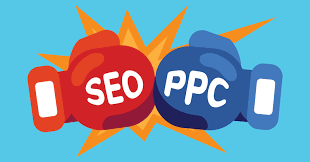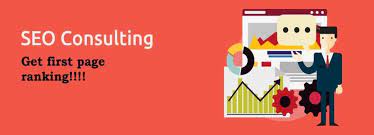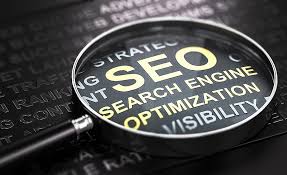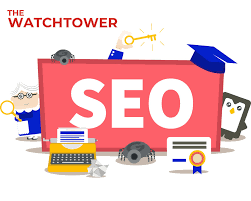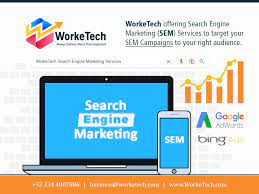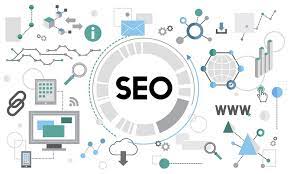Unlocking Success: The Power of Paid Search Engine Marketing Strategies
The Power of Paid Search Engine Marketing
In today’s digital age, where competition for online visibility is fierce, businesses are constantly seeking ways to stand out and attract customers. One powerful tool in the digital marketer’s arsenal is paid search engine marketing.
Paid search engine marketing, also known as pay-per-click (PPC) advertising, involves placing ads on search engine results pages. These ads appear at the top or bottom of the page when users enter specific keywords related to the advertiser’s product or service.
Benefits of Paid Search Engine Marketing:
- Immediate Results: Unlike organic SEO, which can take time to show results, paid search engine marketing delivers instant visibility. Advertisers can reach their target audience right away.
- Precise Targeting: PPC campaigns allow advertisers to target specific demographics, locations, and interests. This precision targeting ensures that ads are shown to the most relevant audience.
- Measurable ROI: With paid search engine marketing, advertisers can track and measure the performance of their campaigns in real-time. This data provides valuable insights into what is working and what needs adjustment.
- Cost-Effective: PPC campaigns are cost-effective because advertisers only pay when users click on their ads. This pay-per-click model ensures that budget is spent efficiently on actual engagement.
- Brand Visibility: Paid search engine marketing increases a brand’s visibility and awareness online. By appearing at the top of search results, businesses can establish credibility and attract more clicks.
Tips for Successful Paid Search Engine Marketing Campaigns:
- Keyword Research: Conduct thorough keyword research to identify relevant terms that your target audience is searching for.
- Create Compelling Ad Copy: Craft engaging ad copy that entices users to click on your ads. Use strong calls-to-action and highlight unique selling points.
- Landing Page Optimisation: Ensure that your landing pages are optimised for conversions. A seamless user experience from ad click to conversion is crucial for campaign success.
- A/B Testing: Test different ad creatives, keywords, and landing page designs to identify what resonates best with your audience and drives higher conversions.
- Monitor and Adjust: Continuously monitor the performance of your campaigns and make adjustments based on data insights. Optimisation is key to maximising ROI.
In conclusion, paid search engine marketing is a powerful tool for businesses looking to boost their online visibility, attract quality leads, and drive conversions. By leveraging the benefits of PPC advertising and following best practices, businesses can achieve significant results in a competitive digital landscape.
Understanding Paid Search Engine Marketing: Answers to 17 Common Questions
- What is PPC vs SEM?
- What is an example of a paid search ad?
- Is search engine marketing paid media?
- What is difference between PPC and SEM?
- What is the difference between paid search and SEM?
- Is search engine marketing the same as paid search?
- Are Paid Search and PPC the same?
- What is the difference between paid search and PPC?
- What is paid search advertising examples?
- What is paid search marketing example?
- How does paid search engine marketing work?
- What is paid search engine marketing?
- Is there a paid search engine?
- What is SEM in digital marketing?
- How to do paid search advertising?
- Is search engine marketing paid or free?
- What is an example of a PPC?
What is PPC vs SEM?
In the realm of paid search engine marketing, a commonly asked question is the distinction between PPC and SEM. PPC, which stands for pay-per-click, is a subset of SEM, search engine marketing. While PPC specifically refers to the model where advertisers pay each time their ad is clicked, SEM encompasses a broader range of strategies to enhance a website’s visibility on search engines. SEM includes various tactics such as SEO (search engine optimisation), keyword research, and other methods to drive traffic and improve a site’s ranking in search results. Understanding the relationship between PPC and SEM is crucial for businesses looking to leverage paid advertising effectively in their digital marketing efforts.
What is an example of a paid search ad?
An example of a paid search ad can be seen at the top or bottom of search engine results pages when users enter specific keywords related to a product or service. These ads are typically labelled as “Ad” or “Sponsored” and are designed to match the user’s search intent. For instance, if a user searches for “best coffee shops in London,” they may see a paid search ad for a popular coffee chain with a compelling headline, description, and link to their website. Paid search ads are an effective way for businesses to promote their offerings to a targeted audience and drive traffic to their website through paid placements on search engines.
Is search engine marketing paid media?
In the realm of digital marketing, the question often arises: Is search engine marketing considered paid media? The answer is yes. Search engine marketing, particularly pay-per-click (PPC) advertising, falls under the category of paid media. Advertisers pay search engines to display their ads at the top or bottom of search results pages when users enter relevant keywords. This form of paid advertising allows businesses to target specific audiences, drive traffic to their websites, and ultimately increase conversions. By investing in search engine marketing as a paid media strategy, businesses can effectively boost their online visibility and reach their target customers with precision.
What is difference between PPC and SEM?
When discussing paid search engine marketing, a common question that arises is the difference between PPC (Pay-Per-Click) and SEM (Search Engine Marketing). While PPC is a component of SEM, the distinction lies in their scope. PPC specifically refers to the model where advertisers pay each time their ad is clicked, focusing on the cost aspect of online advertising. On the other hand, SEM encompasses a broader range of strategies beyond just PPC, including SEO (Search Engine Optimization) and other methods to improve a website’s visibility in search engine results pages. In essence, while PPC is a tactic within SEM, SEM encompasses a more comprehensive approach to enhancing online presence and driving traffic to websites.
What is the difference between paid search and SEM?
When discussing paid search engine marketing, a common question that arises is the distinction between paid search and SEM. Paid search specifically refers to the practice of placing ads on search engine results pages and paying for clicks on those ads. On the other hand, SEM (Search Engine Marketing) encompasses a broader range of strategies beyond just paid search, including organic SEO, social media marketing, and other tactics aimed at improving a website’s visibility in search engine results. While paid search is a component of SEM, SEM involves a more comprehensive approach to digital marketing that goes beyond just paid advertising on search engines.
Is search engine marketing the same as paid search?
The frequently asked question regarding paid search engine marketing is whether it is the same as paid search. While the terms are often used interchangeably, there is a subtle distinction between the two. Search engine marketing (SEM) encompasses both organic search engine optimisation (SEO) and paid search advertising, with paid search referring specifically to the practice of placing ads on search engine results pages through a pay-per-click model. Therefore, while paid search is a component of SEM, SEM as a whole includes various strategies beyond just paid advertising, such as organic SEO efforts to improve a website’s visibility in search results.
Are Paid Search and PPC the same?
The frequently asked question regarding paid search engine marketing often revolves around the distinction between Paid Search and PPC. While the terms are commonly used interchangeably, there is a subtle difference between the two. Paid Search refers to the broader concept of paying for advertisements to appear on search engine results pages, encompassing various methods such as PPC (Pay-Per-Click) advertising. PPC specifically refers to the payment model where advertisers only pay when users click on their ads. Therefore, while all PPC falls under Paid Search, not all Paid Search strategies necessarily follow the PPC model. Understanding this distinction is crucial for businesses looking to effectively utilise paid search engine marketing strategies to enhance their online visibility and reach their target audience.
What is the difference between paid search and PPC?
When discussing paid search engine marketing, a common query that arises is the distinction between paid search and PPC. Paid search refers to the broader concept of placing ads on search engine results pages to increase visibility and attract traffic. On the other hand, PPC (pay-per-click) is a specific pricing model within paid search where advertisers only pay when users click on their ads. In essence, while paid search encompasses various methods of advertising on search engines, PPC specifically refers to the payment structure based on user engagement. Understanding this difference is crucial for businesses looking to optimise their digital marketing strategies effectively.
What is paid search advertising examples?
Paid search advertising examples encompass various forms of online ads that businesses can use to promote their products or services on search engine results pages. Common examples include Google Ads, Bing Ads, and Yahoo Search Ads, where advertisers bid on keywords relevant to their offerings. When users search for these keywords, the ads appear prominently at the top or bottom of the search results, attracting clicks and driving traffic to the advertiser’s website. These paid search advertising examples allow businesses to target specific audiences, track performance metrics, and achieve measurable results through effective digital marketing strategies.
What is paid search marketing example?
Paid search marketing, commonly known as pay-per-click (PPC) advertising, involves businesses paying for their ads to appear at the top or bottom of search engine results pages. An example of paid search marketing is when a user searches for a specific term on a search engine like Google, and sponsored ads related to that term appear prominently in the search results. These ads are marked as “Ad” to distinguish them from organic search results. Through paid search marketing examples, businesses can target specific keywords and demographics to reach their desired audience and drive traffic to their websites effectively.
How does paid search engine marketing work?
Paid search engine marketing, commonly known as pay-per-click (PPC) advertising, works by allowing advertisers to bid on specific keywords relevant to their products or services. When users search for these keywords on search engines like Google, ads from advertisers bidding on those keywords are displayed at the top or bottom of the search results page. Advertisers only pay when users click on their ads, hence the term “pay-per-click.” The position of the ad is determined by a combination of bid amount and ad relevance. This targeted approach ensures that ads are shown to users actively searching for related products or services, increasing the likelihood of engagement and conversions for advertisers.
What is paid search engine marketing?
Paid search engine marketing, commonly known as pay-per-click (PPC) advertising, is a digital marketing strategy where advertisers bid on specific keywords to have their ads displayed prominently on search engine results pages. When users enter relevant search queries, these ads appear above or below organic search results. Advertisers pay a fee each time a user clicks on their ad, hence the term “pay-per-click.” Paid search engine marketing allows businesses to target their desired audience effectively, drive immediate traffic to their websites, and achieve measurable results through tracking and analytics.
Is there a paid search engine?
In the realm of paid search engine marketing, it is a common query to wonder if there exists a specific paid search engine. The answer to this frequently asked question is that while there isn’t a standalone paid search engine per se, the term refers to the practice of placing ads on existing search engines such as Google, Bing, or Yahoo. Advertisers bid on keywords relevant to their products or services, and their ads are displayed prominently in search results when users enter those keywords. Therefore, paid search engine marketing involves leveraging existing search engines to promote businesses and drive targeted traffic to their websites.
What is SEM in digital marketing?
In the realm of digital marketing, SEM stands for Search Engine Marketing. It encompasses various strategies and techniques aimed at enhancing a brand’s visibility on search engine results pages through paid advertising. SEM involves activities such as pay-per-click (PPC) campaigns, keyword research, ad creation, and bid management to drive targeted traffic to a website. By utilising SEM effectively, businesses can increase their online presence, attract relevant audiences, and achieve specific marketing goals through paid search engine marketing efforts.
How to do paid search advertising?
To embark on paid search advertising, businesses first need to identify their target audience and relevant keywords. Conducting thorough keyword research is essential to determine the most effective terms that align with the business goals. Next, create compelling ad copy that resonates with the target audience and includes strong calls-to-action. Setting up targeted campaigns on platforms like Google Ads allows businesses to specify budgets, targeting criteria, and ad formats. Monitoring campaign performance regularly and making data-driven adjustments are crucial for optimising results and maximising ROI in paid search advertising efforts.
Is search engine marketing paid or free?
When it comes to search engine marketing, there is often confusion surrounding whether it is a paid or free strategy. In reality, search engine marketing encompasses both paid and organic efforts. While organic search engine optimisation (SEO) focuses on improving a website’s visibility in unpaid search results, paid search engine marketing involves placing ads on search engine results pages for specific keywords. Therefore, while organic SEO is free in terms of not paying for clicks, paid search engine marketing requires advertisers to pay for each click on their ads. It’s important for businesses to understand the distinction between the two and utilise both strategies effectively to maximise their online presence and reach their target audience.
What is an example of a PPC?
An example of a PPC (pay-per-click) advertising platform is Google Ads, formerly known as Google AdWords. Google Ads allows advertisers to create and display ads on Google’s search engine results pages and across its vast network of partner websites. Advertisers bid on keywords relevant to their business, and their ads are displayed to users who search for those keywords. With Google Ads, advertisers only pay when users click on their ads, making it a cost-effective and measurable way to reach their target audience and drive traffic to their websites.
